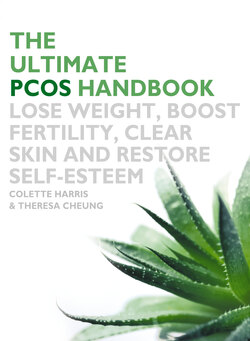Читать книгу The Ultimate PCOS Handbook - Theresa Cheung - Страница 33
PERIMENOPAUSE AND THE MENOPAUSE
ОглавлениеIn the same way as a car can’t go from 60 mph to standstill without slowing down, your ovaries also need time to slow down before they stop completely at the onset of the menopause. Perimenopause is the period of gradual physical and biochemical change that leads to the menopause, when your ovaries’ production of oestrogen slows down, causing irregular periods. Generally changes such as shorter or longer periods, heavier or lighter bleeding and varying lengths of time between periods may be an indication of perimenopause, which usually lasts around two to five years, before the menopause itself – your last period. The average age for the onset of perimenopause is 47, though this varies.
Typical symptoms of perimenopause include fatigue, mood swings, hot flushes, vaginal dryness, loss of libido, memory loss, night sweats and irregular periods.
The average age of the menopause for women in Western nations is 51, though some may experience it as early as their thirties or as late as their sixties due to hereditary influences or even illness. You’re classified as post-menopausal when you haven’t had a period for 12 months.
